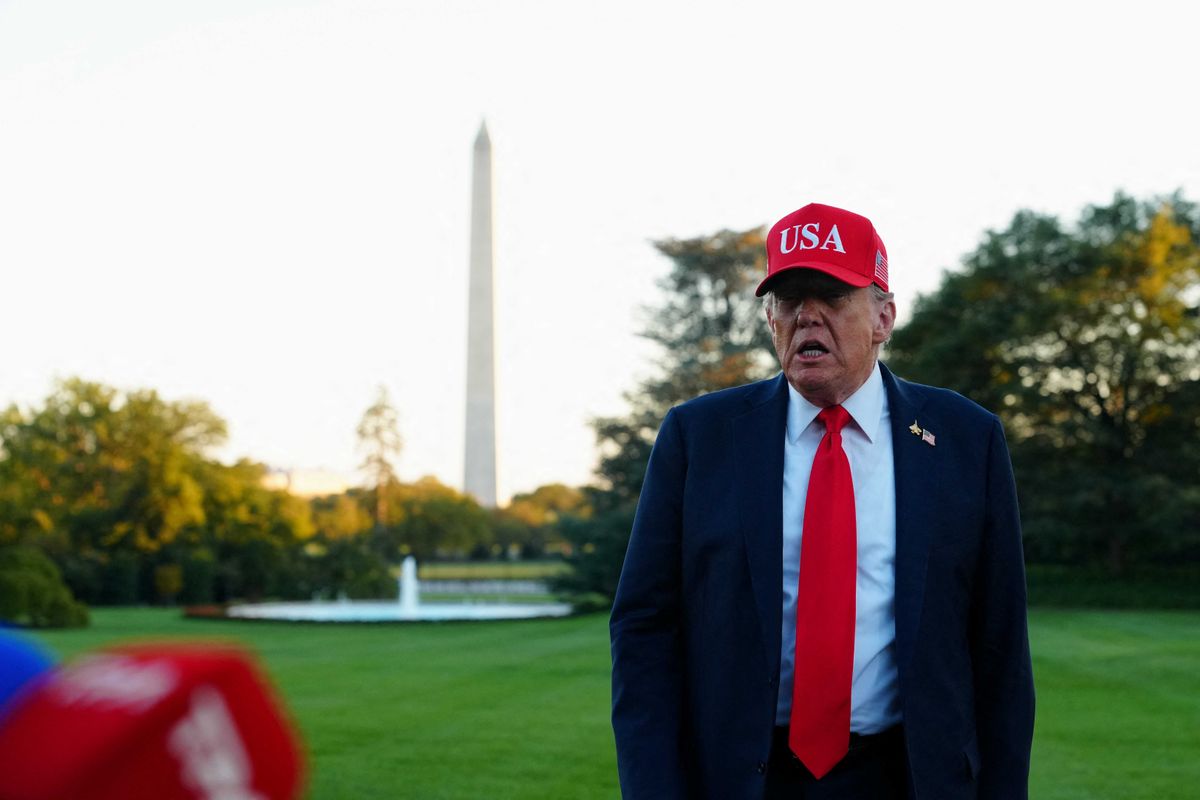
President Donald Trump's series of U.S. Supreme Court wins backed by a majority of conservative judges now has two theories emerging, and an expert saying "the crisis is now."
In Slate's Amicus podcast interview, Dahlia Lithwick speaks to Ian Millhiser, senior correspondent at Vox. Millhiser covers the high court, the Constitution, and the decline of liberal democracy in America.
In the conversation, the journalists discuss two potential theories, including the appeasement theory — a diplomatic strategy that harkens back to Neville Chamberlain's approach during World War II, when the former British Prime Minister attempted to appease Germany in hopes of negotiating with Adolf Hitler. This theory suggests that justices could patiently wait to push back on the president. Ultimately, the high court could stack up wins for Trump in an attempt to finally hand him a loss.
"They’re finding all these procedural ways to hand Trump victories and maybe that’s because they don’t want to damage the substantive law," Millhiser said. "And maybe they will turn around eventually when someone finally finds the perfect plaintiff and files in the perfect court [so] that Amy Coney Barrett has to admit, Yes, you are allowed to bring this magical person to this magical court and actually get a magical injunction from it."
Millhiser admits he tries "not to read the minds of the justices in part because I don’t know if it really matters that much whether the Neville Chamberlain theory of the Supreme Court is correct or whether the theory that they’re just 100 percent on board with MAGA is correct. Either way, they’re handing down the same decisions and what matters most is the results."
It could be a matter of time, but the exact timing is unclear. The high court might not be trying to pick a fight with Trump, or start a potential constitutional crisis or uncontrollable standoff between SCOTUS and the executive branch.
"Maybe they will then rule in August of Trump’s last year in office that he did something illegal, but who cares? The crisis is now," Millhiser said. "And if they are letting Trump win because they think they can appease him and find procedural reasons to kick the can down the road for as long as possible, or if they are instead doing it because they think that Stephen Miller is the most awesome person who has ever lived and they wake up every morning asking themselves, What would Stephen Miller do?, we’re still getting the exact same results."
And it could also come down to the unitary executive theory.
"I mean, it’s certainly true that a lot of these justices, the Republican justices, have a very strong ideological commitment to a very, very powerful presidency," Millhiser said. "That’s what this unitary executive theory that they’re all in love with is all about. So maybe they’re doing it just because they are on board with it."
Another take: they could have a cynical approach, "which is that they might think that Trump’s politics may not be sustainable."
"And four years from now, we might have, say, a President Josh Shapiro or someone in office who is trying to use all of these powers that the court has given Trump," Millhiser said. "And if they definitively rule that Trump has the power to do something, then when President Gretchen Whitmer, President Cory Booker, or President AOC comes in and wants to use these powers, then they could turn around and hand down the decision saying, No, the president is not allowed to do this once a Democrat is doing it."
It could leave future presidents and Democrats in a tough position, he argues.
"So certainly this tactic that they’re using—of kicking the cans down the road and not handing down any definitive decisions—it leaves open the possibility to manipulate the timing of their decisions as they often do to make sure that they benefit their party and do not benefit the Democratic Party,"




